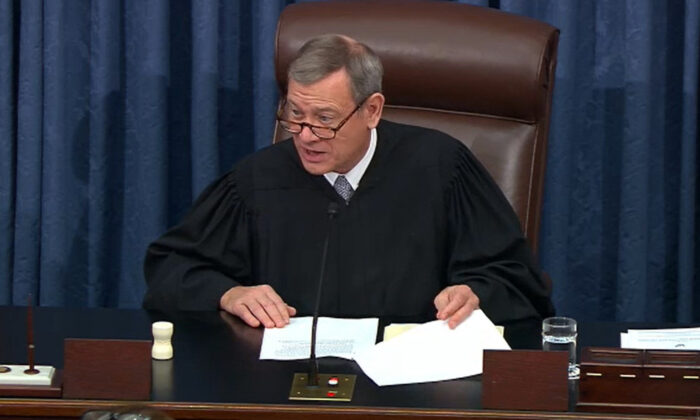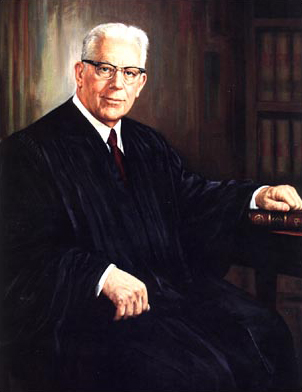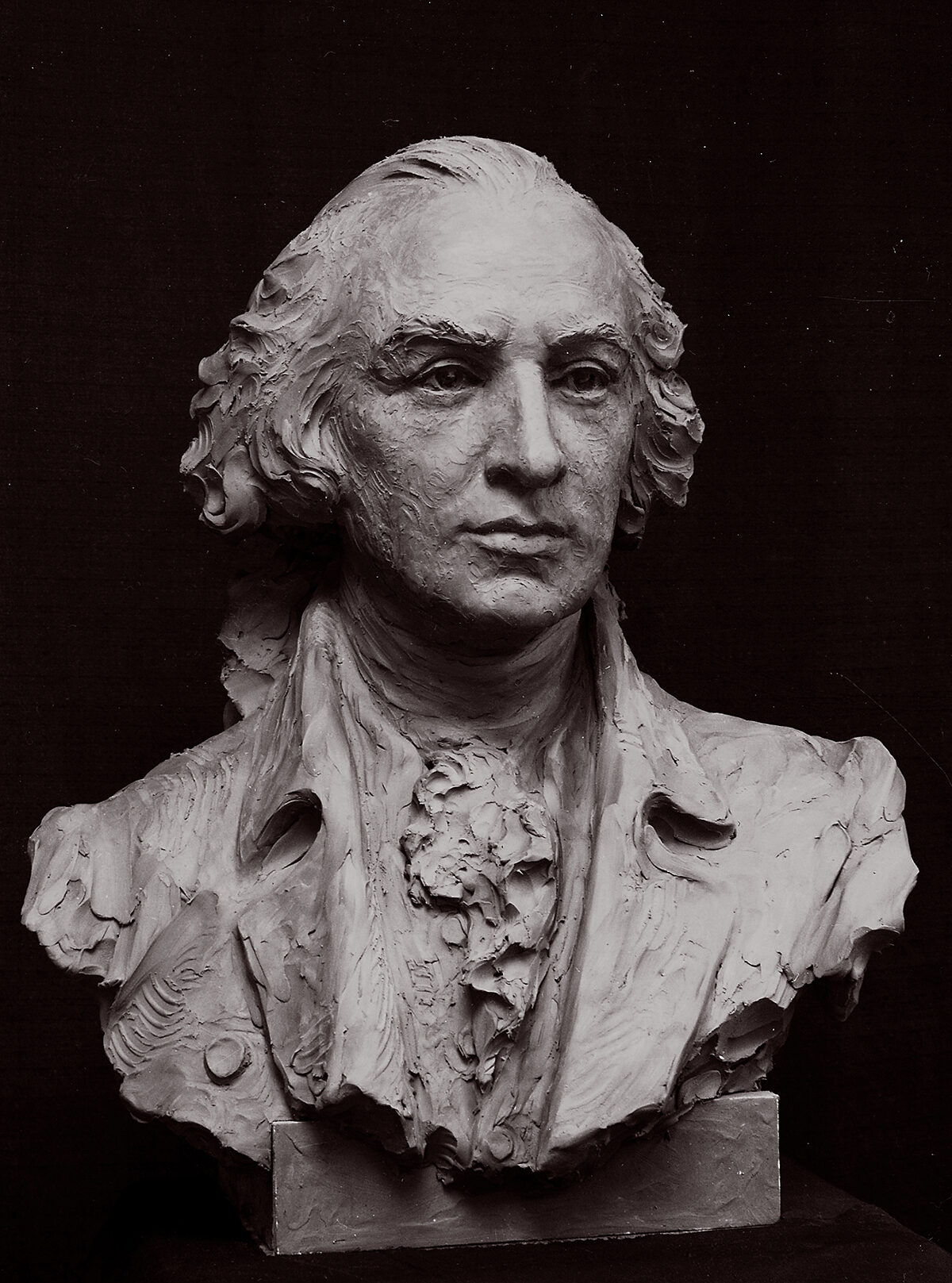CAN THE PRESIDENT REMOVE A JUSTICE FROM THE COURT?
The Constitution states that Justices "shall hold their Offices during good Behaviour." This means that the Justices hold office as long as they choose and can only be removed from office by impeachment. ... The only Justice to be impeached was Associate Justice Samuel Chase in 1805.

With Abortion Decision, Roberts Betrays Constitutionalists and the ConstitutionOnce again, Chief Justice John Roberts has angered and frustrated conservatives by throwing his lot in with the Supreme Court’s four ultra-liberal justices in a case of paramount moral and political importance.
By casting the deciding vote in a 5–4 ruling against the state of Louisiana’s perfectly reasonable restrictions on abortion “providers” by requiring them to have admitting privileges at nearby hospitals, the chief justice has shown himself unworthy of the trust of the president and congress who appointed and confirmed him in 2005.
This is not the first time Roberts has yanked the rug out from conservatives just as they thought they had finally achieved victory in a matter of fundamental moral and social significance.
The first time came in the Obamacare decision of 2012, when he switched his vote at the last minute from nay to yay and kept the unconstitutional law alive by deciding that the so-called individual mandate was not a requirement to purchase a product but instead a tax, and thus constitutional. The sophistry behind his opinion, which was in part based on his horse-trading with the liberal bloc over the related issue of Medicaid expansion, resulted in the 5–4 vote upholding the mandate.
It was a Pyrrhic victory for Roberts, whose primary obsession is upholding the dignity of the Court even as, in the eyes of many, he’s destroying its legitimacy.
This year alone, Roberts has ambushed his fellow constitutionalists on the court in cases dealing with LGBT employment rights, and with his pettifogging notion that President Donald Trump must say “Mother may I?” to the judicial branch in order to overturn, by executive order, then-President Barack Obama’s illegal order granting paths to citizenship to alien children raised in the United States. “Arbitrary and capricious,” as the solons—led, of course, by Roberts—called Trump’s principled restoration of immigration law.
As Alice (in Wonderland) says to Humpty Dumpty in “Through the Looking Glass,” “The question is whether you can make words mean different things—that’s all.” To which he replies, “The question is which is to be master—that’s all.”
Republican Mistakes
During his tenure, President Dwight D. Eisenhower made five appointments to the Court, helping to restore some partisan balance to a body that had numbered eight Democrats and one Republican. Two of them, however, proved disastrous: Chief Justice Earl Warren and Associate Justice William Brennan.

Chief Justice Earl Warren (Public domain)
Republican presidents have been making the same mistake ever since. President Richard Nixon gave us midwesterners Warren Burger as chief justice and Harry Blackmun as an associate—the “Minnesota twins”—and it was their votes that put Roe v. Wade over the top.
President Gerald Ford put John Paul Stevens, another conservative who “grew” in office, on the court, while even the sainted President Ronald Reagan only batted .500 with Sandra Day O’Connor and Anthony Kennedy on the wrong side of the ledger.
And who can forget President George H.W. Bush’s elevation of obscure New Hampshire Judge David Souter to the high court, although he was at least counterbalanced by Clarence Thomas?
Judicial ‘Independence’
Roberts, who promised at his confirmation hearings to just call “balls and strikes,” bids fair to outdo even Earl Warren in his ideological activism, however, couched it may be in the language of preserving the Court’s “independence.”
And therein lies the problem. For all the talk of three “co-equal” branches of government, the Constitution is quite clear on the subject: The judiciary is subordinate to the legislative and executive branches. Indeed, the only federal judicial officer mandated therein is the chief justice—and he was never meant to be the de facto king of America.
Let’s have a look at Article III, which establishes the judiciary:
Section 1. “The judicial power of the United States shall be vested in one Supreme Court, and in such inferior courts as the Congress may from time to time ordain and establish. The judges, both of the supreme and inferior courts, shall hold their offices during good behavior, and shall, at stated times, receive for their services, a compensation, which shall not be diminished during their continuance in office.”
In other words, aside from the chief justice, the entire federal judiciary is a creation of Congress and can be modified or even abolished as Congress wishes. Nowhere, for example, is the number of associate justices stipulated or even required.
Section 2 enumerates the Court’s areas of original jurisdiction, which cannot be taken away from it, including the laws of the United States, treaties, ambassadors, maritime matters, and disputes among and between the federal government and the states. In other areas, the Constitution decrees appellate jurisdiction “under such regulations as the Congress shall make.”
Congress can also strip the Supreme Court of any jurisdiction other than original—as it did, by the 11th Amendment, passed in 1795, which was adopted specifically to overturn Chisholm v. Georgia, a case regarding the status of state sovereign immunity in federal courts. That amendment, in turn, was partially abrogated by the 14th Amendment of 1868.
In Marbury v. Madison (1803), the Court ruled unanimously, 4–0 (two of the six justices were ill and did not participate), and established in law the principle of the judicial review mentioned in Article II, thus opening the way not only to judicial equality with the other two branches but to effective judicial supremacy.
It is the worst Supreme Court ruling in American history, and whose baleful influence is still felt today. Without it, the enormities of the pro-slavery Dred Scott decision; the racial humiliations of Plessy v. Ferguson, which enshrined Jim Crow laws, and the bloodletting of Roe, which legalized baby murder, would never have occurred.

James Madison. (Avard T. Fairbanks/CC BY-SA 4.0)
As James Madison observed of the tripartite federal structure in “Federalist” 49: “The several departments being perfectly co-ordinated by the terms of their common commission, none of them, it is evident, can pretend to an exclusive or superior right of settling the boundaries between their respective powers.” Madison rejected the idea that the Court’s interpretation of the Constitution should be superior to that of the other two branches.
Similarly, in “Federalist” 78, Alexander Hamilton observed: “the judiciary, from the nature of its functions, will always be the least dangerous to the political rights of the Constitution; because it will be least in a capacity to annoy or injure them. The Executive not only dispenses the honors but holds the sword of the community. The legislature not only commands the purse but prescribes the rules by which the duties and rights of every citizen are to be regulated. The judiciary, on the contrary, has no influence over either the sword or the purse … but merely judgment; and must ultimately depend upon the aid of the executive arm even for the efficacy of its judgments.”
Nonacquiesence
Throughout his presidency, Trump has had to contend not only with a Democratic Party that refuses to accept its 2016 loss at the polls, with an increasingly hostile media that has abjured its previous, if aspirational, standards of fairness and objectivity in favor of rank and rabid partisanship, with a rogue element in the GOP that works to frustrate his every endeavor, and also with a federal judiciary that believes it can countermand his executive orders by issuing nationwide injunctions—or in the case of DACA—Supreme Court decisions.
From the start, Trump should have taken a page from some of his illustrious predecessors and simply defied the courts—a doctrine known as “nonacquiesence.”
Jefferson did it in 1807 with his continuance of the Embargo Act despite a Supreme Court decision against him.
Similarly, in “Federalist” 78, Alexander Hamilton observed: “the judiciary, from the nature of its functions, will always be the least dangerous to the political rights of the Constitution; because it will be least in a capacity to annoy or injure them. The Executive not only dispenses the honors but holds the sword of the community. The legislature not only commands the purse but prescribes the rules by which the duties and rights of every citizen are to be regulated. The judiciary, on the contrary, has no influence over either the sword or the purse … but merely judgment; and must ultimately depend upon the aid of the executive arm even for the efficacy of its judgments.”
Throughout his presidency, Trump has had to contend not only with a Democratic Party that refuses to accept its 2016 loss at the polls, with an increasingly hostile media that has abjured its previous, if aspirational, standards of fairness and objectivity in favor of rank and rabid partisanship, with a rogue element in the GOP that works to frustrate his every endeavor, and also with a federal judiciary that believes it can countermand his executive orders by issuing nationwide injunctions—or in the case of DACA—Supreme Court decisions.
From the start, Trump should have taken a page from some of his illustrious predecessors and simply defied the courts—a doctrine known as “nonacquiesence.”
Jefferson did it in 1807 with his continuance of the Embargo Act despite a Supreme Court decision against him.

Abraham Lincoln (Alexander Gardner/public domain)
Even FDR thought about defying the courts, although he eventually browbeat the Court into submission by threatening to expand its membership and pack it with liberals.
As Justice Robert H. Jackson famously observed, “The Constitution is not a suicide pact.” In other words, we cannot rationally let the perfect be the enemy of the good in human affairs.
Although the Louisiana case does not directly affect the president, Trump would serve himself and the Constitution well by denouncing it, and indeed all cases of judicial overreach. In the matter of “nationwide injunctions,” he already has a powerful ally in Justice Thomas, along with his own appointee, Justice Neil Gorsuch, who has all but begged for a precedent-setting case to come before the Supreme Court.
Gorsuch wrote in a recent decision earlier this year: “It has become increasingly apparent that this Court must, at some point, confront these important objections to this increasingly widespread practice.
“I hope, too, that we might at an appropriate juncture take up some of the underlying equitable and constitutional questions raised by the rise of nationwide injunctions.”
Had Trump adopted an adversarial but constitutionally principled stand against court decisions that were, in his judgment, unconstitutional, his presidency might not be hanging from a thread right now. The precise boundaries of the “separation of powers”—a phrase deriving from Montesquieu, not found in the Constitution—are unclear, in part by design. The Framers didn’t feel the need to spell out a remedy for every possible situation, but merely to provide a framework for doing so.
Since the Warren Court, the nation has fallen under the sway of an unelected legislature of nine black robes, a body relying on the acquiescence of the executive—the “sword,” in Hamilton’s words—in enforcing its diktats. Like the justices, the president swears an oath to uphold the Constitution—not the interpretations of the Court, which are often manifestly wrong. Just ask Dred Scott.
So the next time this happens, Trump should simply quote the words attributed to President Andrew Jackson in Worcester v. Georgia involving Indian sovereignty, which Jackson lost: “Justice Marshall has made his decision; now let him enforce it.”
In the meantime, so should Louisiana.



One of the penalties for refusing to participate in politics is that you end up being governed by your inferiors. -- Plato (429-347 BC)
THE PATRIOT
"FIGHTING FOR FREEDOM AND LIBERTY"
and is protected speech pursuant to the "unalienable rights" of all men, and the First (and Second) Amendment to the Constitution of the United States of America, In God we trust
Stand Up To Government Corruption and Hypocrisy
Knowledge Is Power And Information is Liberating: The FRIENDS OF LIBERTY BLOG GROUPS are non-profit blogs dedicated to bringing as much truth as possible to the readers.
Knowledge Is Power And Information is Liberating: The FRIENDS OF LIBERTY BLOG GROUPS are non-profit blogs dedicated to bringing as much truth as possible to the readers.
NEVER FORGET THE SACRIFICES
BY OUR VETERANS
Note: We at The Patriot cannot make any warranties about the completeness, reliability, and accuracy of this information.
The Patriot is a non-partisan, non-profit organization with the mission to Educate, protect and defend individual freedoms and individual rights.
Support the Trump Presidency and help us fight Liberal Media Bias. Please LIKE and SHARE this story on Facebook or Twitter.
COMPLAINTS ABOUT OUR GOVERNMENT REGISTERED HERE WHERE THE BUCK STOPS!
GUEST POSTING: WOULD YOU LIKE TO BE PUBLISHED ... DO YOU HAVE SOMETHING ON YOUR MIND?
Knowledge Is Power - Information Is Liberating: The Patriot Welcome is a non-profit blog dedicated to bringing as much truth as possible to the readers.
Big Tech has greatly reduced the distribution of our stories in our readers' newsfeeds and is instead promoting mainstream media sources. When you share with your friends, however, you greatly help distribute our content. Please take a moment and consider sharing this article with your friends and family. Thank you
Please share… Like many other fact-oriented bloggers, we've been exiled from Facebook as well as other "mainstream" social sites.
We will continue to search for alternative sites, some of which have already been compromised, in order to deliver our message and urge all of those who want facts, not spin and/or censorship, to do so as well.
Keep on seeking the truth, rally your friends and family and expose as much corruption as you can… every little bit helps add pressure on the powers that are no more.
Keep on seeking the truth, rally your friends and family and expose as much corruption as you can… every little bit helps add pressure on the powers that are no more.
Those Who Don't Know The True Value Of Loyalty Can Never Appreciate The Cost Of Betrayal.


No comments:
Post a Comment